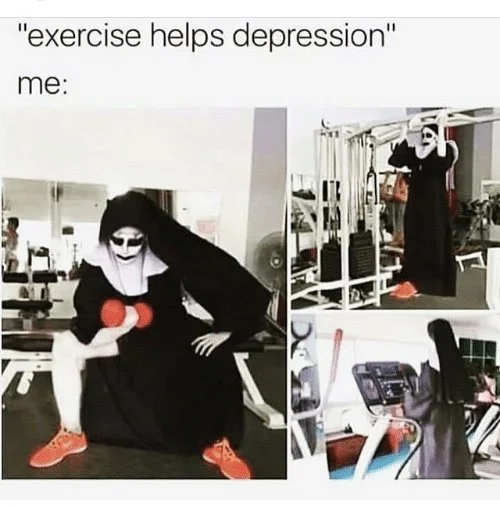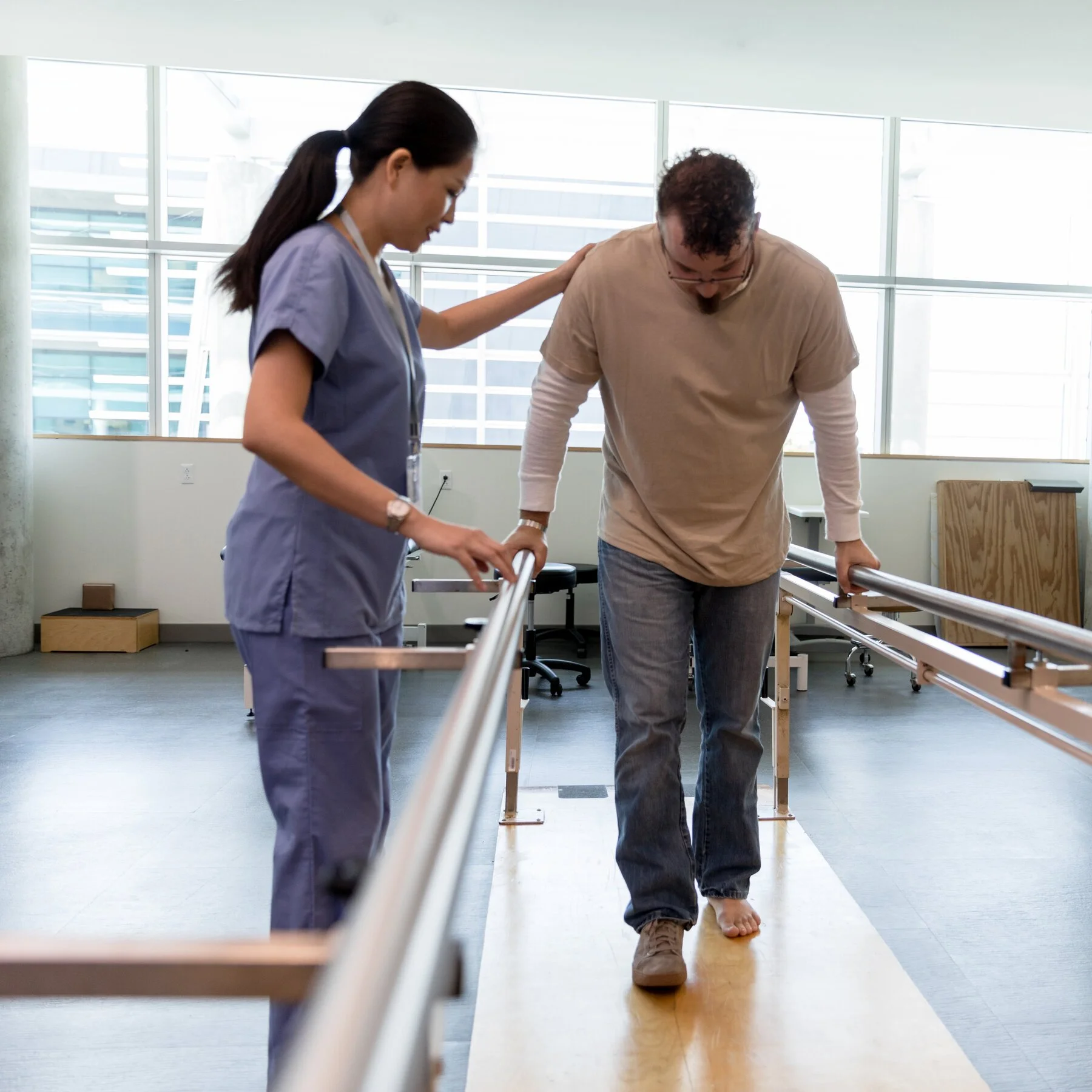Exercise is medicine
“Exercise leads to an increase in the levels of certain neurotransmitters, including serotonin, dopamine, and norepinephrine. These chemicals play an essential role in mood regulation, mental alertness, and focus, potentially explaining why physical activity is often associated with reduced symptoms of depression and anxiety.” https://neurosciencenews.com/fitness-neuroscience-23228/
It’s been proven again and again and again that exercise lessens depression and anxiety (and a bunch of other good things too.) Seriously. It’s not like maybe or maybe not or depends. It is PROVEN to help. Despite this, whenever I would read how great exercise was for depression or anxiety, I would literally roll my eyes. I think the part that was most frustrating was knowing that it wasn’t a cure (it’s one ingredient) and then trying to decide if the energy it took to actually do it would have enough of a positive impact to make the stress of it all worth it. Yikes, that’s a lot of thinking lol. But I finally stopped being stubborn and just did it… and it does help.
With exercise, you’ll feel less stressed, you’ll sleep better, your self-esteem will increase, and you’ll have more energy. Physiologically speaking, exercise reduces the release of the stress hormone cortisol and increases the production of the feel better neurochemicals norepinephrine, endorphin, serotonin, dopamine, and noradrenaline. Honestly, the scientific community is basically begging people to exercise: exercise “affects nearly every cell in the human body” stated this article, and “exercise profoundly impacts our brain and nervous system stated this article. Additionally, exercise can stimulate the production of GABA, which low levels of has been linked to depression and anxiety.
Strive for 150 minutes a week of moderate intensity (get your heart rate up basically). Establish a method to getting 150 minutes a week. If at first it’s just 30 minutes (or heck 10 minutes), that’s okay. Work toward 150, but meet yourself where you are and start small if you need to. This isn’t a race haha. For example, week 1- you could just take two 10-minute slow walks; week 2, increase it to three walks, and so on and so forth. Yep, seriously, start off that slow if you need to. Yes, it counts. But more importantly, you’re moving toward a goal and that’s hugely important. Also, if you drink alcohol, you might consider increasing the amount of exercise you get to counteract alcohol’s impact. There’s also new research being done about only exercising on the weekends, if that’s what works best for you: https://www.insider.com/health-benefits-of-daily-exercise-two-days-week-study-2023-7
Do what works for you. One person’s yoga or running is another person’s nightmare. It’s great when people are passionate about how they exercise, but you have to find what works for you.
Don’t make it harder than it needs to be. 150 minutes a week, get your heart rate up. That’s it. This is mind medicine. This isn’t about losing weight, getting buff, or transforming your body. This is about depression and/or excessive anxiety.
Change it up when you feel like. You don’t have to be beholden to one activity. Mostly, I walk, but sometimes in the summer I bike, and usually about once a year I’ll randomly do yoga for a month. It honestly doesn’t matter as long as you doooo it :)
Try a mantra. Some days I just don’t want to do it. Sometimes days stretch into weeks- which results in me feeling really crappy. So, I use mantras. I’ll say “this is mind medicine. this is why I do it.”- and I might say that the entire time I’m walking for 30 minutes.
An accurate and hilarious meme.
Yes, it sucks at first. You’ll think, how can this possibly cure me? It may even feel impossible, painful, and pointless. But remember it’s part of the solution. It’s difficult because of the physical symptoms of depression such as extreme fatigue, not to mention the mental anguish and hopelessness that goes with you everywhere, but you have to find a way to push through all of that and get some exercise. It’s science.
Pretend it’s physical therapy.
I decided to imagine my depression like this: I’d gotten into a really bad accident and I now had to do physical therapy in order to walk again. Maybe a strange visual, but it helped me. Physical therapy is painful and exhausting - mentally and physically. So for me, this visual worked. I told myself it doesn’t matter how hard it is, if I want to get better and stay better, I have to do it.

